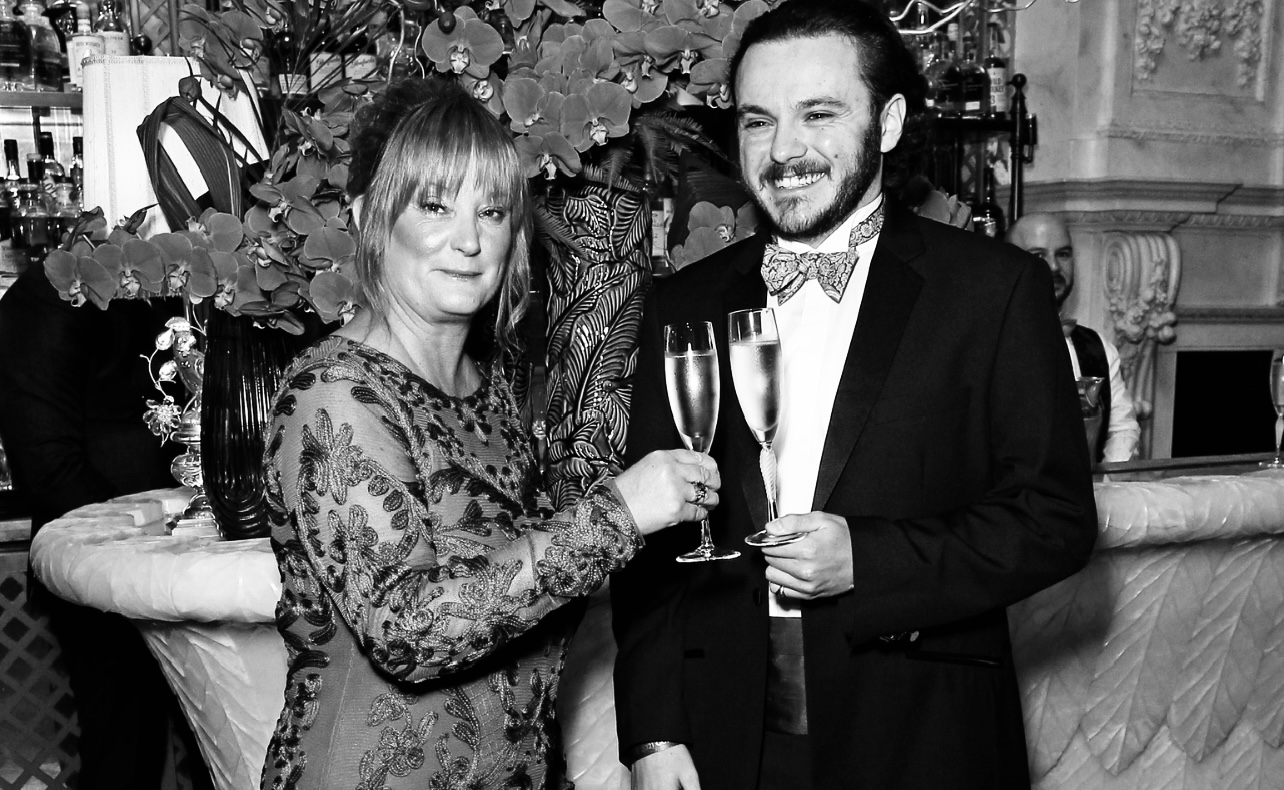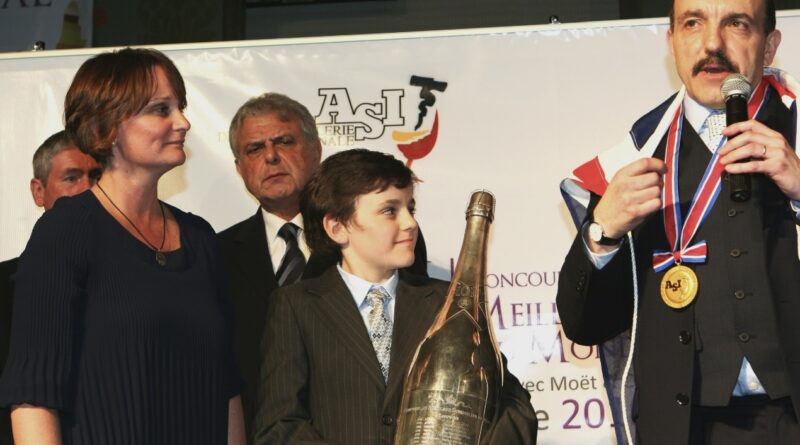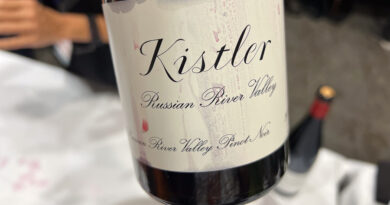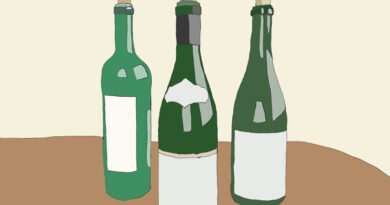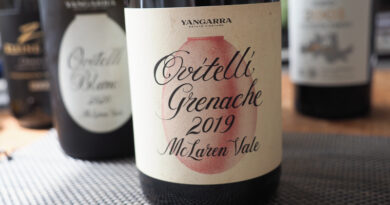Gérard Basset’s widow Nina and son Romané call on UK government to appoint a specialist minister for hospitality as crisis bites
We ask the UK Sommelier of the Year 2022 Vincenzo Arnese what it takes to get to the top and we review the help available to those in the trade through the Gérard Basset Foundation, established in memory of one of the greatest characters hospitality has ever seen
Lisse Garnett reports
In 2019 the economic output of the UK hospitality sector was nearly 60 billion according to a House of Commons report published in May. That equates to 3% of the UK’s total economic output. In March 2020 there were 2.53 million hospitality jobs in the UK: that’s 7.1% of all UK employment. Yet this business sector does not have adequate government representation and is heaped in with tourism, a fact, says Nina Basset, that perfectly reflects the lack of understanding our government has of the industry.
Gérard Basset was the the world’s most celebrated sommelier. He was just one of the many young people and foreign workers, myself included, who have worked in hospitality temporarily and grown to love it. In his book he recounts how his wife Nina was the magical pairing that made all things possible, the love she had for him made him feel he could conquer the world. And that’s exactly what he did. Basset understood the power of mentorship. He understood that sometimes all it takes is someone else to believe in you to light the flame of success. That’s what his friends and family are doing at the foundation, reaching out, without judgement and enabling those of all nationalities and circumstances to succeed as he did.
Gérard Basset was a consummate joker who had not represented himself well in school, his childhood home was not happy and playing the fool bought him the affection he craved. He was also a huge football fan and his first trip to England in 1977 was to see his home team Saint-Etienne play Liverpool. Then twenty, he had heard terrifying tales of crazy English football hooligans so was amazed by the reception he received.
‘To my surprise the locals were extremely friendly and came to see us. At that time English football fans were often in the news because of hooliganism, but we didn’t see any. We were invited to drink tea, have biscuits and even sandwiches in more than one house and made extremely welcome.’
‘I had ..put some green make-up on my face and was wearing a green wig!’
‘Liverpool FC won 3-1 and although I was a bit sad, I did not feel too bad. I had a truly wonderful day among the people of Liverpool and seen one of the greatest European games I had ever witnessed’
It was to be the first step in a truly astonishing career, he returned to Liverpool and landed a seasonal porter role in a restaurant kitchen on the Isle of Man. Later he worked at the Chewton Glen Hotel where he met Robin Hutson, his wife Judy and Nina. They went on to create the much-emulated boutique hotel chain Hotel du Vin. He was also the only person to ever pass the Master of Wine plus Master Sommelier exams and take an MBA in Wine Business.
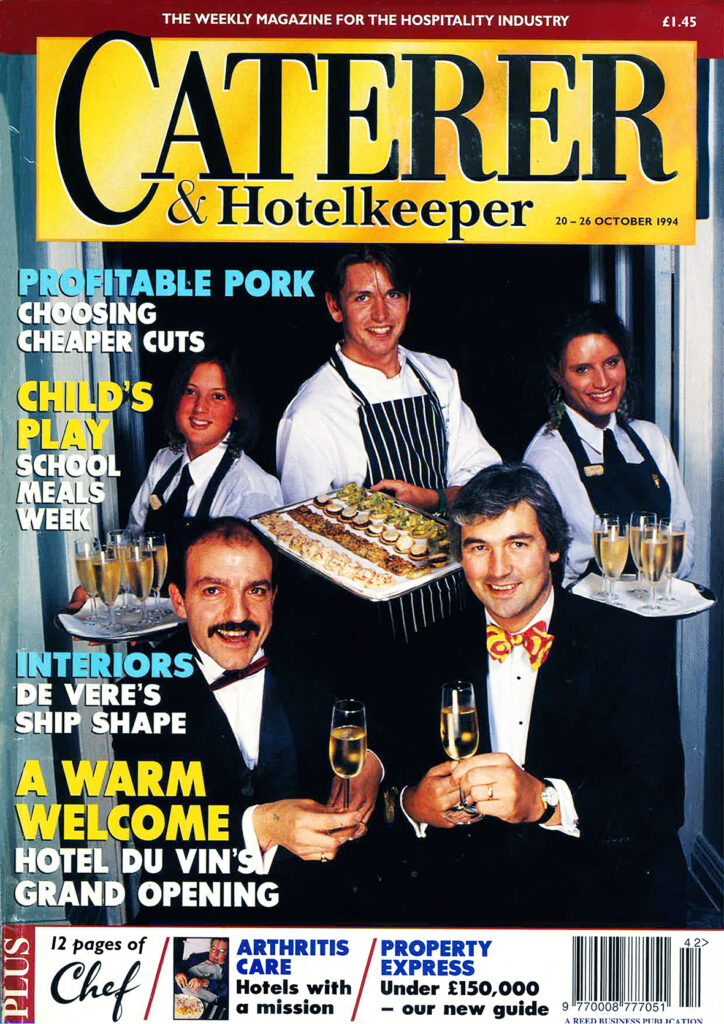
When diagnosed with terminal cancer he immediately wrote a book, in it he tells his story – with wit and with grace, laying down his pen shortly before he died in January 2019. Much loved and terribly missed, his wife Nina – the woman who facilitated his life’s achievements and his son Romané continue his legacy through The Gérard Basset Foundation, a charitable trust that addresses the wine trades most pressing issues through education, training and mentorship. The book is wonderful, utterly without pretension and a must read for anyone but especially those who have started at the bottom of the hospitality ladder. There are so many anecdotes and the life hacks Gérard employs to deal with tricky situations are brilliantly audacious. His life may have been cut short but he fitted three lifetimes worth of love and fun into it. Links to an excellent documentary made by 67 Pall Mall and his book follow this piece.
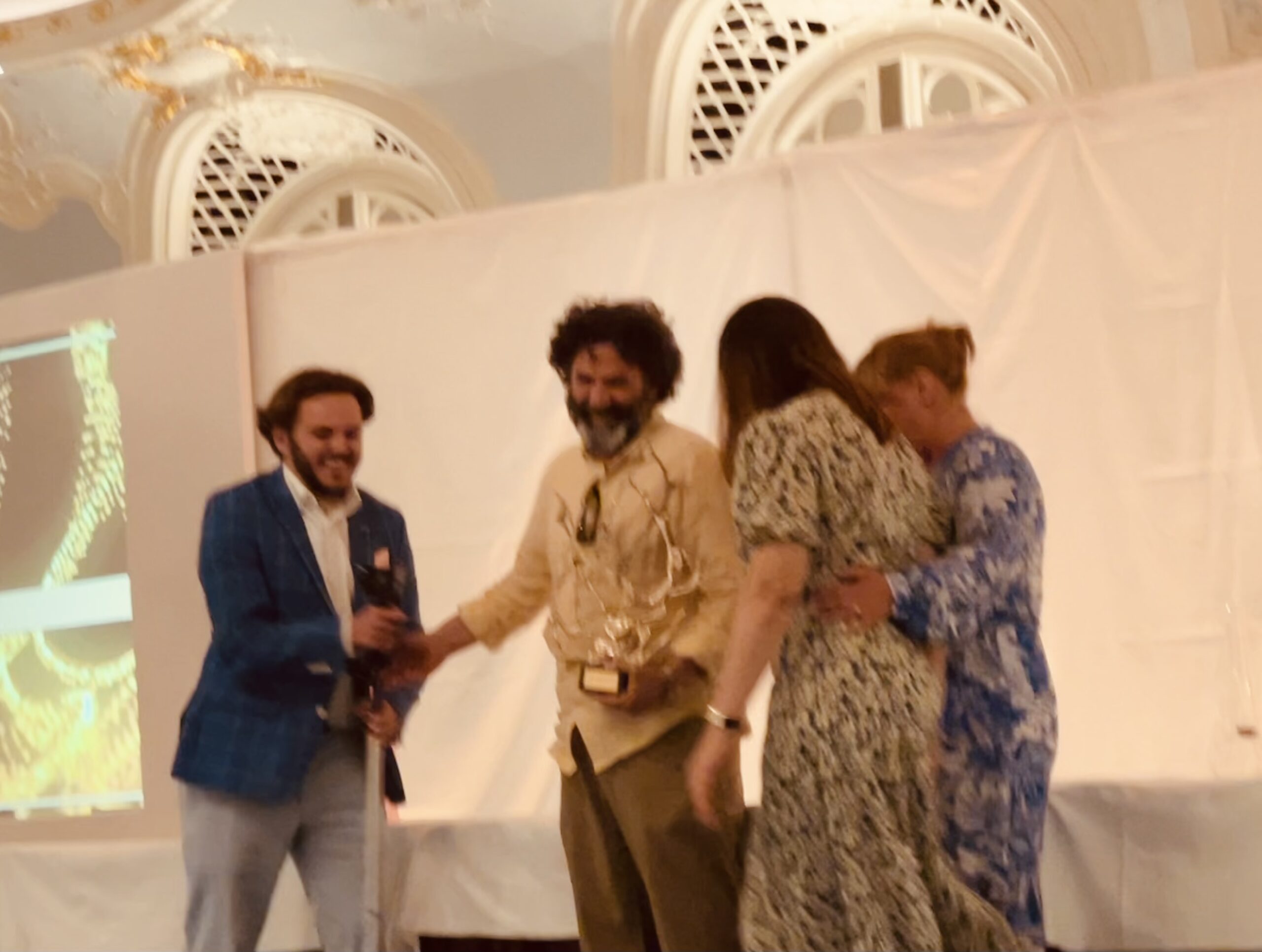
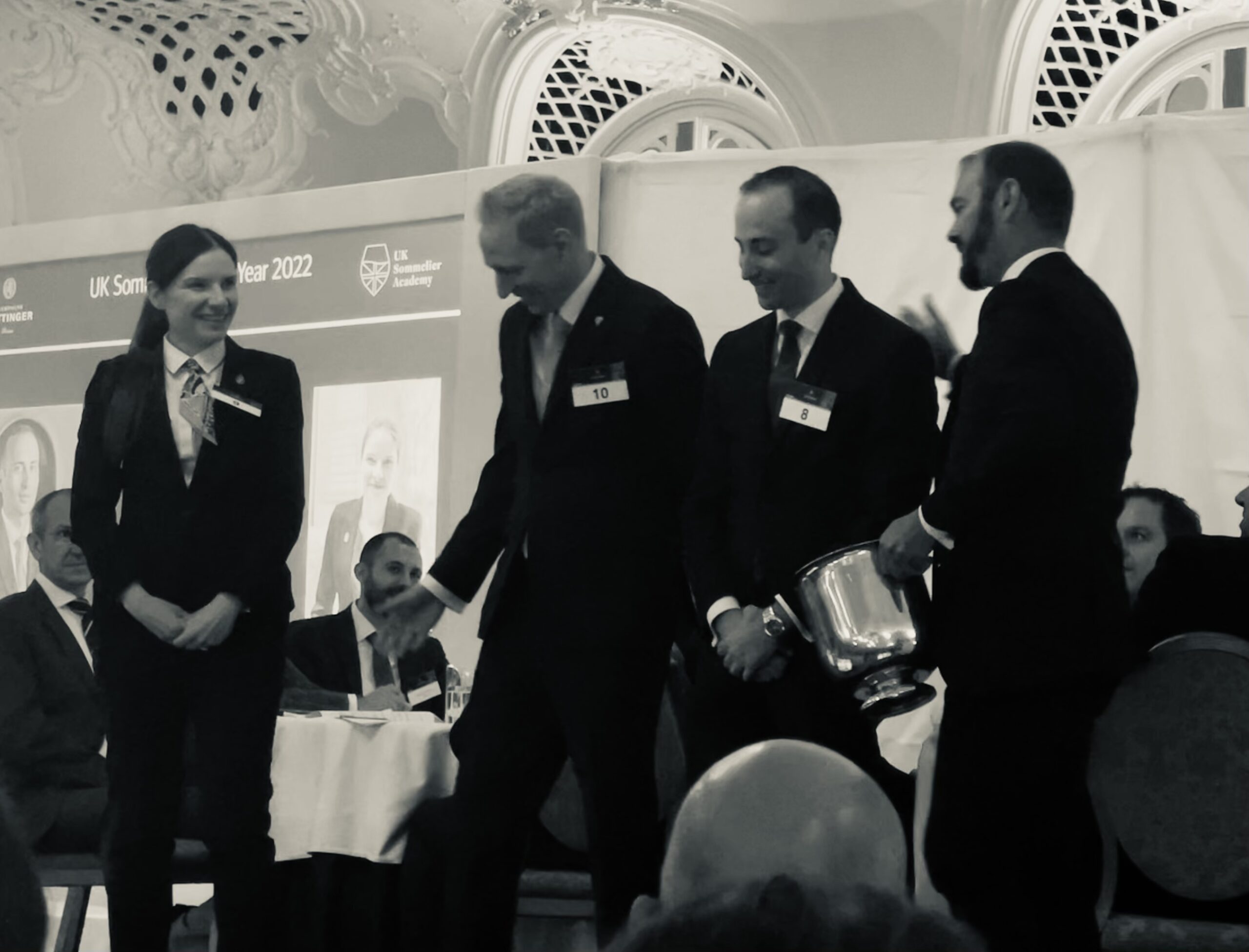
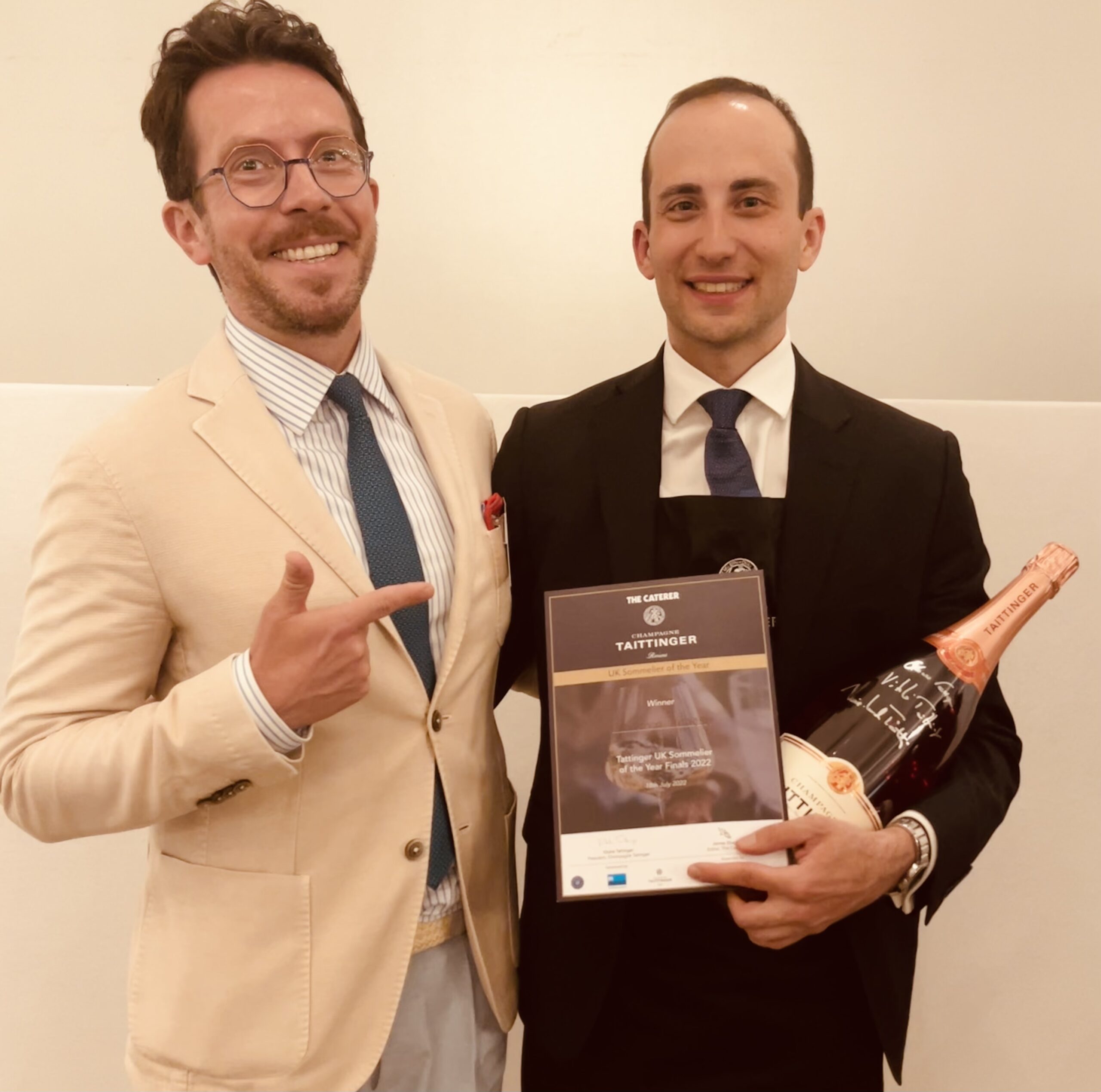
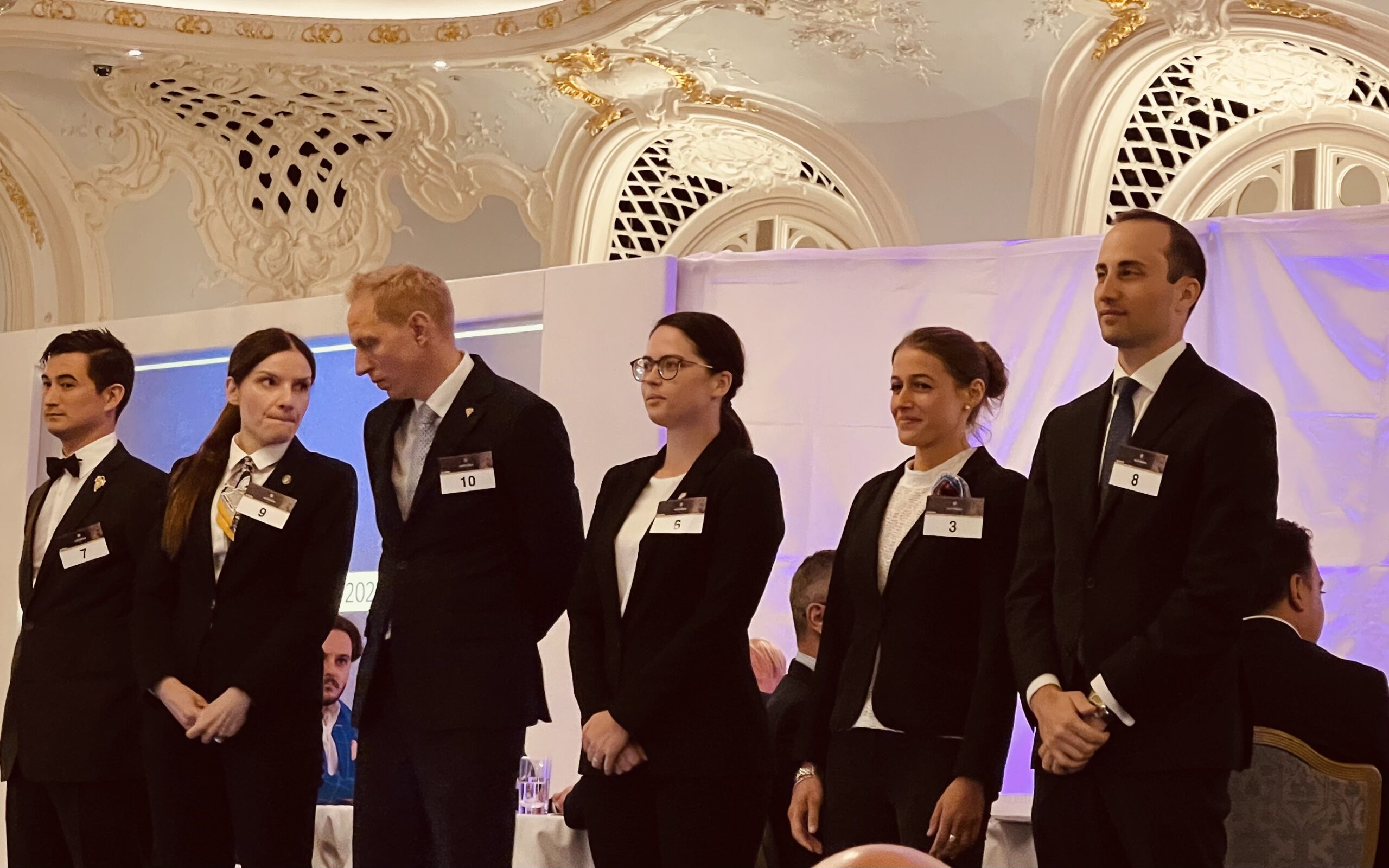
I met Nina and Romané at the UK Taittinger Sommelier of the Year Finals in London where they were presenting awards, it is a competition Basset aced so means much to this pair. The action takes place live on stage and is incredibly tough with various knock out rounds to reduce the candidates down to three. Contestants must answer Mastermind style wine questions and serve in front of a critical live audience. The humility and knowledge as well as sheer courage they displayed was mind bending. I actually wept with euphoria when the winner was announced. That winner was Naples born Vincenzo Arnese, surely a perfect example of where hospitality can take you if you have grit. His career started, like Gérard’s, when he walked into a Naples restaurant looking for work.
Lisse Garnett (LG): We are facing a crisis in London when it comes to getting hospitality staff – you offer scholarships to make the profession more inclusive but is there anything we can do to encourage people to join the trade?
Nina Basset (NB): We have to change so many people’s perceptions of the industry. I think we will always have people who come in and out of hospitality as a means to pay the rent and bide their time whilst they are doing training for other things. We used to have lots of people working for us part time who were training to be architects, solicitors and doctors, they were amazing as members of our team and we were always so sorry to lose them but they would never ever have thought about hospitality as a career because for them it was just a means to an end. I have people who call me now and ask for career advice who say, ‘We’ve been in hospitality for a couple of years and we like it but it’s not really a career choice’ – Why isn’t it? If you are in hospitality the world is your oyster, you can do so much and you learn so much but I don’t think schools or universities are selling that message.
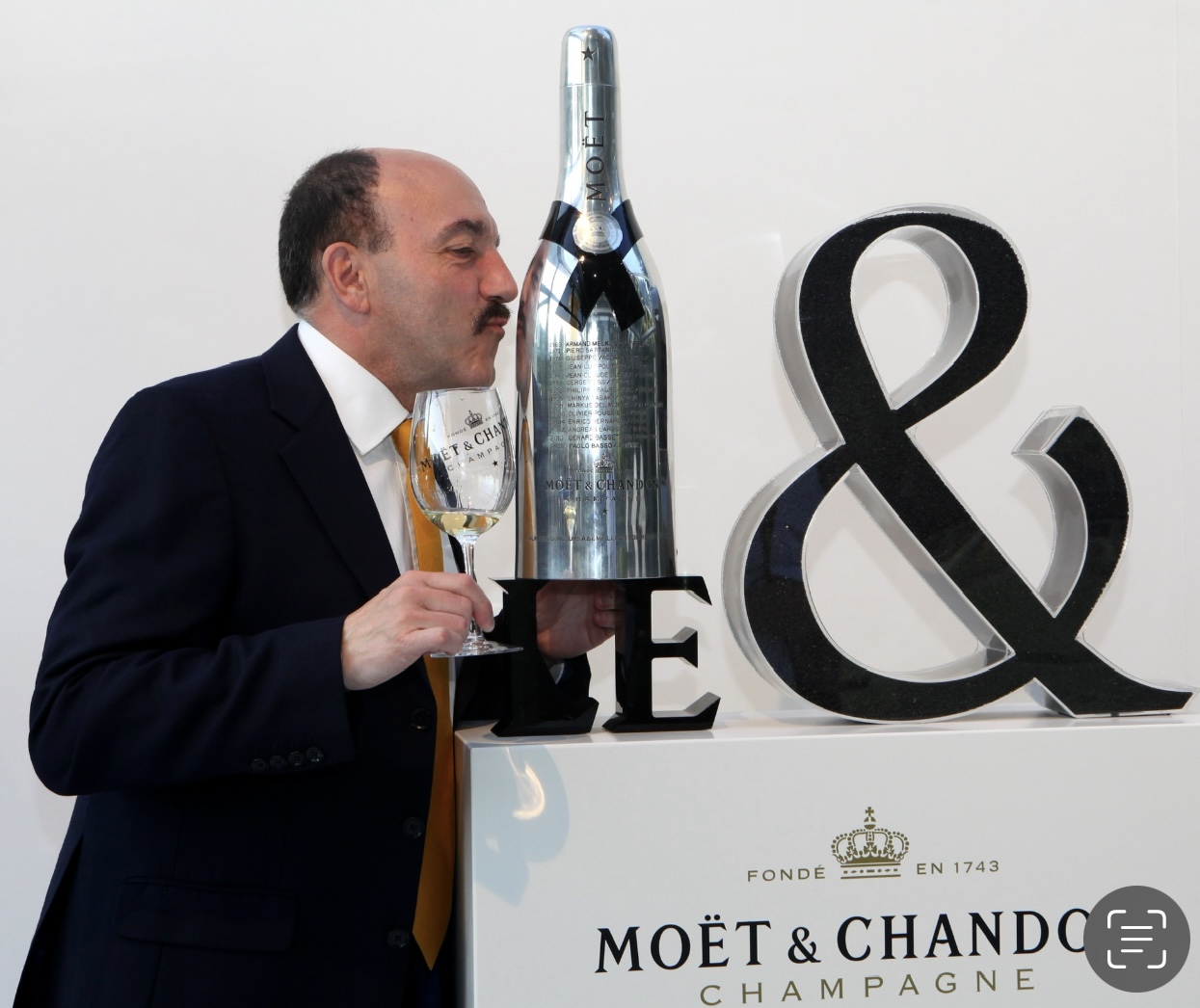

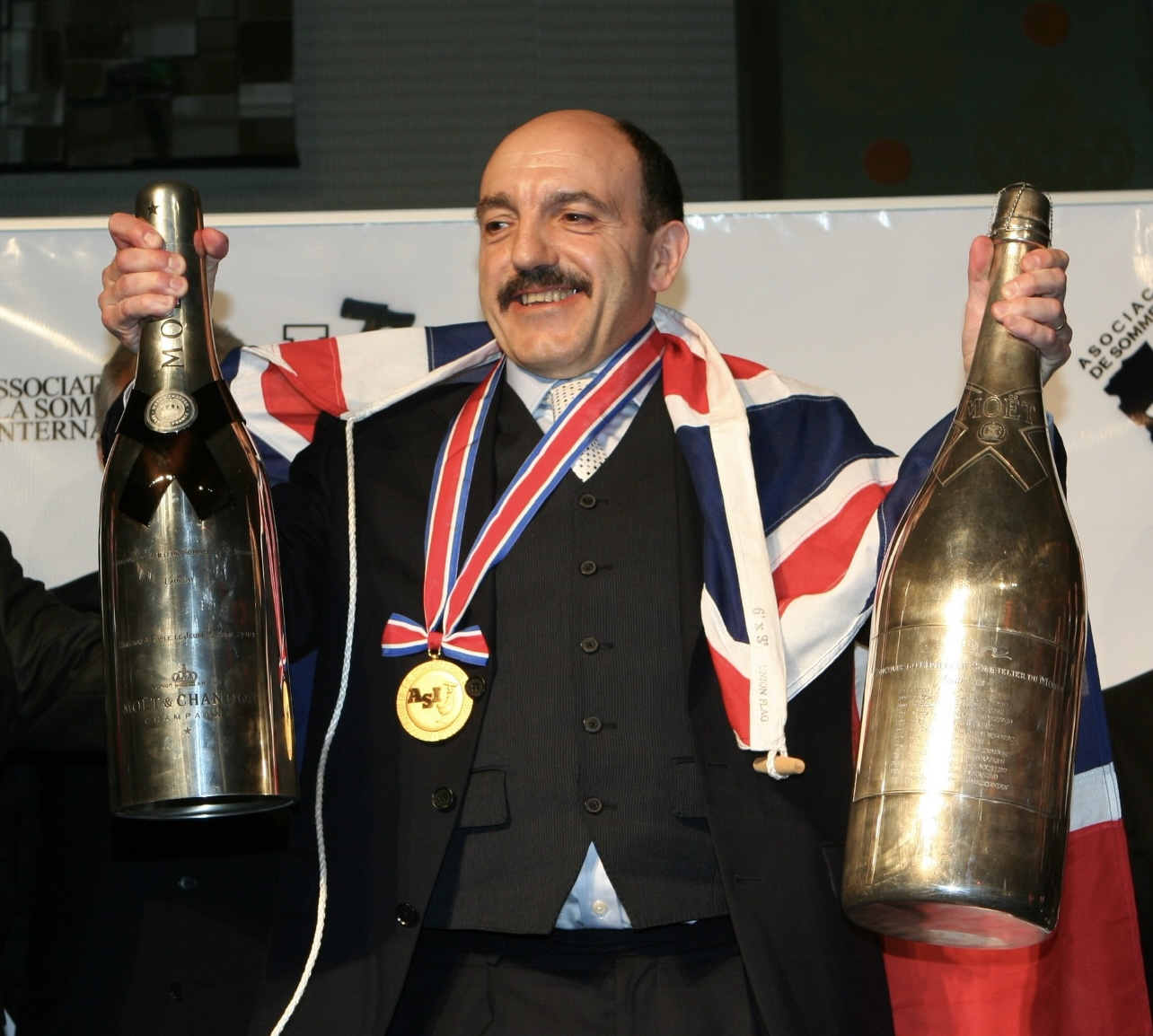
Romané Basset (RB): I don’t think that hospitality is seen as a profession anymore and that is a perception that is spreading across Europe. At the upper echelons of course its different, the sommeliers in the finest restaurants, the general managers and many of the people working as waiters and waitresses, of course there is passion and belief in their life’s work. At the lower levels still to this day in some parts of France you go into a local restaurant and the head waiter is still fiercely proud of being a head waiter.
NB: We need a Minister for Hospitality – we have a minister for tourism, but that’s not enough – we need something much more specialised. I think that became very obvious during Covid but also during Brexit – during Covid when all of these small businesses had to shut and furlough all their staff – if we had had someone championing our industry it would have been fabulous and it would have made such a difference.
We as customers have something to answer for too. Having been in the industry for such a long time I’ve seen so many changes in people’s attitudes – we talk about road rage but I call it restaurant rage. I’m horrified when I sit in a restaurant and I hear the way some of the customers speak the serving staff and interact with them: it’s as if they are nobodies.
Everyone has become an armchair critic and that’s partly because of review sites like Trip Advisor which as a hotelier and restaurateur are the bane of your life. It gives people a platform to be horrible and nasty and criticise without any kind of comeback and I think that hasn’t helped our reputation either – it’s really damaged it actually.
When we first got out of lockdown we were all really keen to party. And, I think, for a very short time people really appreciated hospitality and the people working within it but slowly we’ve gone back to all of the bad habits we had before. Covid has really damaged the industry but likewise so has Brexit – so many great people have had to go back to the own countries and cannot come back because of the restrictions we’ve put on travelling so I think it’s been an amalgamation of all sorts of things at a time when the world is in such a state of flux. Are we ever going to get to point where we are back to where we were? Of course not everything about where we were was positive but I wouldn’t want to be a restaurateur today facing those hard decisions.
LG: Should we as customers be paying more?
NB: It’s very hard to pay more at restaurants when your mortgage rate has gone up.
Nobody saw this coming to the extent its happened and nobody really knows how we are going to survive it.
RB: I’m speaking as someone who is very young I don’t think it’s going to get better anytime soon but there will come a point where a transformation will occur – one day a leader might get voted in who is practical and not a populist numpty.
NB: We are extremely important to our collective economy and when Boris commented on the industry – about having no qualifications. It was so insulting to everyone who is in the hospitality industry – Does he not realise how much the service industry and hospitality brings to the economy – billions of pounds and yet you’ve just kicked it in the teeth – by saying it’s not a profession. It was breathtakingly terrible.
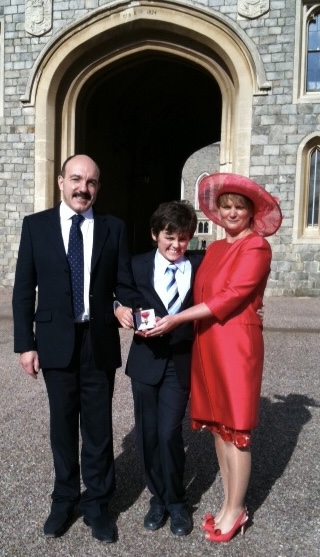
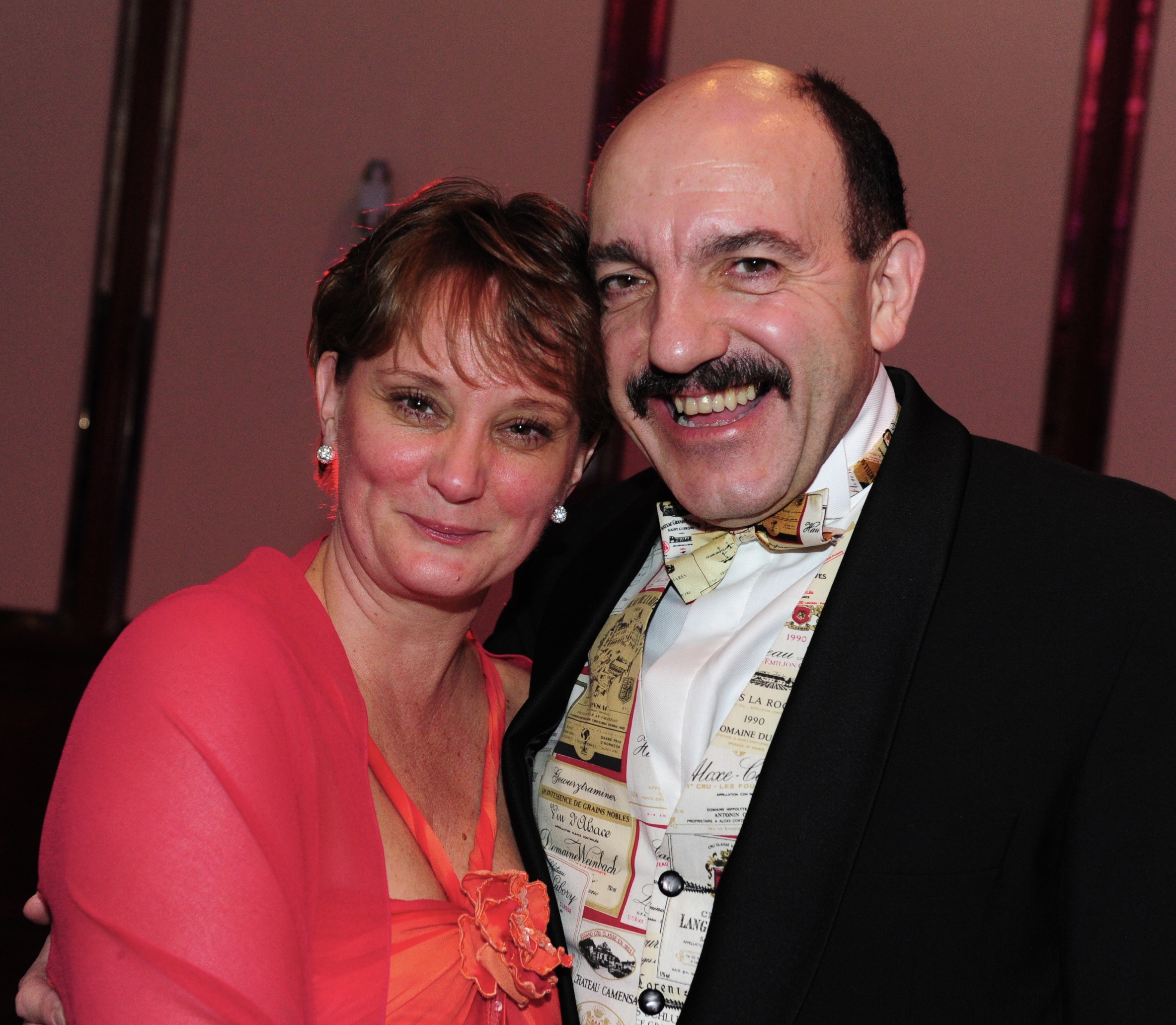
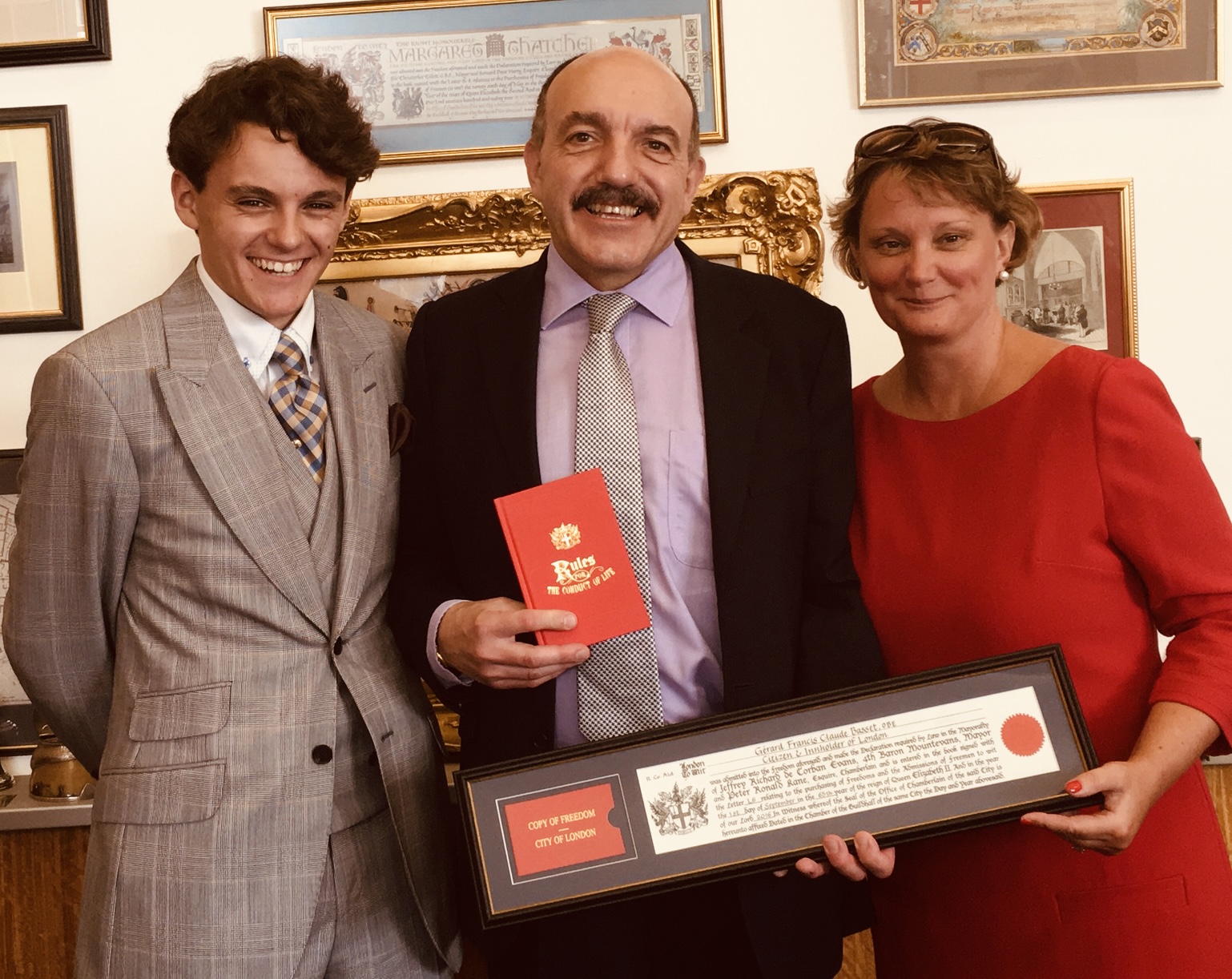
LG: Nina what is it about hospitality that forges such intense friendships?
NB: In hospitality you work in such close proximity, you end up going out socially with people that you work with. I think within hospitality and the wine world that’s quite unique in the sense that in an office you get to have a separate life from your work life.
Sommeliers especially must love people, so they collect people and they are drawn to like-minded people who are passionate about what they do. I think to be a good sommelier you have to be passionate about what you are doing.
There is a connectivity that lasts through time and through different countries that you work in. I think organisations such as the ASI are very good at nurturing that familiar family feel because we all get together around the world for international competitions and everyone connects with each other. They are very good at instilling this family focus within the sommelier community.
It was something that Gérard was very proud to be involved in because he felt that there was this warmth, care and mentoring of people. Anyone could pick up the phone and say help, I need some guidance. I need some expert advice – I need someone to talk to me about what’s next in my career. I’m sure other industries have that but I think in our industry it is just such a huge benefit.
RB: Papa said it best. ASI filmed him in Argentina in 2002, he said, ‘A sommelier has got to love people’ and the interviewer says – ‘People not wine?’ ‘Yes people’. The modern sommelier is people-focused and the ASI is very good at nurturing them.
NB: I remember in November we were lucky enough to go to Cyprus as part of the UK delegation for the Best Sommelier in Europe, the first day was just a cacophony of back slapping and it’s cross continent – UK and Africa were there and a few people from Ireland. We are very close to Daniel Stojcic who was best sommelier of Ireland, there representing Ireland for the first time. By the end of the 4 days it was like they had known him for years – it’s so embracing!
We noticed it when Gérard was alive but we’ve noticed it even more since because we have just been scooped up and loved by them all – it wasn’t by proxy, it was though we were equally as important to them as Gérard was which for us has been lovely.
LG: Why was Gérard so keen to perform academically, he was already hugely successful?
RB: When he was younger he wanted to be a Tour de France cyclist or a footballer.
NB: He left school with no qualifications so for him it was really important, I think to prove to himself more than to anyone else that actually he was intelligent enough to gain qualifications. At school he was the class joker, the most popular guy because he was always messing about.
LG: Why did you both set up Gérard Basset Foundation?
NB: It stemmed from Gérard – It really didn’t matter to him who you were or what you had done before – everyone had an even playing field. He believed in being able to step into a career and through education and especially travel, furthering that career by learning from peers and books.
I think when we lost him we wanted to keep his legacy alive. Lewis Chester was a good friend of Gérard’s. We talked and came up with the idea of the foundation – it was Lewis who suggested we should be championing inclusivity and diversity within the wine industry because there is room for it to be improved. It is still very much a middle-class white male focused trade and times have changed.
RB: We now fund groups around the world. There’s two broad categories, the Hennessy Golden Vine Scholarships in partnership with Liquid Icons – and a wonderful array of sponsors such as Taylors Port Scholarships – which involves an internship programme with over 30 of the world’s finest estates. This year we launched the Hennessy Golden Vine Scholarship – which is one year internship for one scholar at Hennessey to work in all departments – plus funding for their WSET in Spirits studies. We have the Dom Pérignon Scholarships which are for students to do their MW and MS qualification – it pays the fees. These qualifications are geared towards Somms on the floor, wine journalists and hospitality professionals .
We also do a scholarship with The Wine Scholar Guild which is the perfect steppingstone for the MW. We started another this year that we are fiercely proud of – the Artémis Domaines for victims of conflict. We saw what was happening in Ukraine and we thought we want to help but we have a charitable mandate – it has to be educational and it has to be related to hospitality. There are five scholarships – 20K euros for a scholarship salary for a 6 month period. The criteria were quite tough. It is for victims of conflict anywhere in the world.
NB: I think he would have approved of what we have done. It’s really exciting to see so many people out there who without help could not have gotten the hospitality education that they wanted and needed.
Gérard Basset passed away peacefully on January 16, 2019. He ends his book with these words:
‘Meeting Nina brought me my biggest achievement of all: my son Romané. He has brought nothing but joy, happiness and pride to Nina and me. I write this knowing that I will not watch him grow still further into the fine young man I know he will become, and I feel a sense of sadness.
He is living proof that being so deeply immersed in wine and hospitality opened doors to a world I could not have imagined. My efforts to serve other people, to choose wines that would take their meal to another level, to make them comfortable and give them a night, or a holiday, that they would remember for the rest of their lives, repaid me many times over. I would do it all again.
Gerard Basset’s book, Tasting Victory is available here.
67 Pall Mall’s documentary, A Life in Wine: Gerard Basset | The World’s Favourite Sommelier may be found here.
